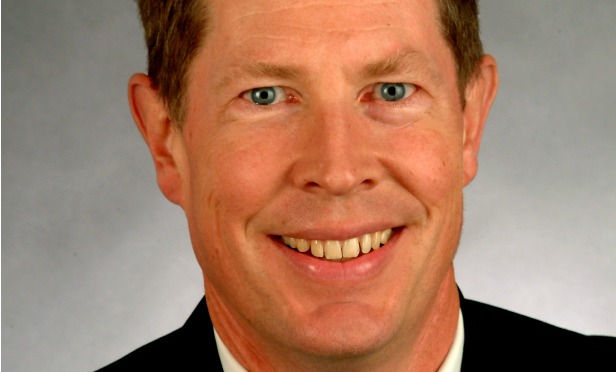
LOS ANGELES—Real estate lawyer Kathleen Smalley, a partner at Locke Lord LLP recently addressed the need for more uniformity in real estate finance law in a UCLA Economic letter. While there isn't currently a widespread movement to achieve uniformity across state lines, Smalley made an argument that there is increasing need, especially during times of economic downturn. However, not all real estate lawyers agree that uniformity is necessary or achievable. Steve Lieske, a partner at Allen Matkins, believes that the inherently local nature of real estate relieves the need for cross-boarder uniformity of law.
“I think that while this is a worthy goal, uniformity of laws may be somewhat unattainable,” Lieske tells GlobeSt.com. “People of course may have said that about the uniform commercial code as well, and I like Kathleen Smalley's analogy. The difference I see is that with UCC-type issues, there are cross-board transactions and there is more of a need for uniformity. With respect to real property law is by nature local, and it always will be local because the dirt and the buildings that sit on that dirt are located in a specific state, and that state has a vested interest in protecting its citizens and making sure the real estate is administered in accordance with what the local folks think is important.”
Aside from the issue of attainability, Lieske doesn't think that uniformity in real estate finance law is even necessary because only a minority of transactions involve multiple states. “I don't believe there is a need for uniformity of laws, but I also think that given the complexity of it, it is unattainable,” says Lieske. “I don't think there would be enough folks that are interested in pushing it.”
While Lieske wasn't sold on uniformity, he did applaud Smalley's “novel” perspective and forward thinking to create more uniformity. “Standardization and uniformity means efficiency,” he adds. “When I think about the way that the world has gone toward technology, there is a lot of efficiency out there. We have made so many advances that have resulted in so much efficiency, but the law hasn't really kept pace with that. We have got to figure out ways to make the process more efficient for everyone.”
Lieske isn't completely eschewing uniformity. He believes that Smalley's vision could be applied to uniformity of loan documentation, which would create more efficiency. “I believe that we need uniformity of documentation,” he adds. “This would not be a situation where a statute or law would be enacted, but instead the lenders across the country would say, 'this is what we need in a good set of loan documents, and these are the comments that we always get from the borrowers on this.' They could create a form set of documents that is going to provide the protections that the lender needs while at the same time giving the borrower what it needs in terms of representations and warranties that the borrower can reasonably make and covenants that the borrower can comply with. I believe that this is a more practical way to go.”

LOS ANGELES—Real estate lawyer Kathleen Smalley, a partner at
“I think that while this is a worthy goal, uniformity of laws may be somewhat unattainable,” Lieske tells GlobeSt.com. “People of course may have said that about the uniform commercial code as well, and I like Kathleen Smalley's analogy. The difference I see is that with UCC-type issues, there are cross-board transactions and there is more of a need for uniformity. With respect to real property law is by nature local, and it always will be local because the dirt and the buildings that sit on that dirt are located in a specific state, and that state has a vested interest in protecting its citizens and making sure the real estate is administered in accordance with what the local folks think is important.”
Aside from the issue of attainability, Lieske doesn't think that uniformity in real estate finance law is even necessary because only a minority of transactions involve multiple states. “I don't believe there is a need for uniformity of laws, but I also think that given the complexity of it, it is unattainable,” says Lieske. “I don't think there would be enough folks that are interested in pushing it.”
While Lieske wasn't sold on uniformity, he did applaud Smalley's “novel” perspective and forward thinking to create more uniformity. “Standardization and uniformity means efficiency,” he adds. “When I think about the way that the world has gone toward technology, there is a lot of efficiency out there. We have made so many advances that have resulted in so much efficiency, but the law hasn't really kept pace with that. We have got to figure out ways to make the process more efficient for everyone.”
Lieske isn't completely eschewing uniformity. He believes that Smalley's vision could be applied to uniformity of loan documentation, which would create more efficiency. “I believe that we need uniformity of documentation,” he adds. “This would not be a situation where a statute or law would be enacted, but instead the lenders across the country would say, 'this is what we need in a good set of loan documents, and these are the comments that we always get from the borrowers on this.' They could create a form set of documents that is going to provide the protections that the lender needs while at the same time giving the borrower what it needs in terms of representations and warranties that the borrower can reasonably make and covenants that the borrower can comply with. I believe that this is a more practical way to go.”
Want to continue reading?
Become a Free ALM Digital Reader.
Once you are an ALM Digital Member, you’ll receive:
- Breaking commercial real estate news and analysis, on-site and via our newsletters and custom alerts
- Educational webcasts, white papers, and ebooks from industry thought leaders
- Critical coverage of the property casualty insurance and financial advisory markets on our other ALM sites, PropertyCasualty360 and ThinkAdvisor
Already have an account? Sign In Now
*May exclude premium content© 2025 ALM Global, LLC, All Rights Reserved. Request academic re-use from www.copyright.com. All other uses, submit a request to [email protected]. For more information visit Asset & Logo Licensing.








